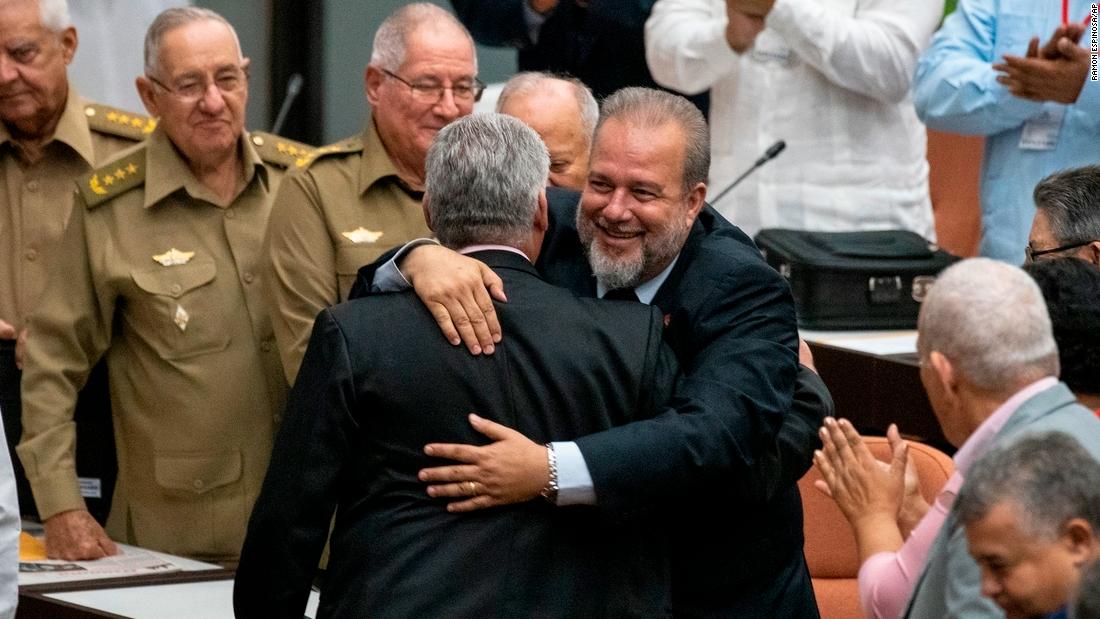Cuba appoints a prime minister for the first time in 43 years - 3 minutes read
 Cuba appoints a prime minister for the first time in 43 years
Cuba appoints a prime minister for the first time in 43 yearsCuban President Miguel Diaz-Canel on Saturday named Manuel Marrero Cruz as the country's prime minister, a nonexistent role within Cuban politics for more than four decades.
Marrero served as the Cuba's tourism minister for almost 16 years and was named prime minister for a five-year term, according to Cuba's state news agency, ACN.
He was a colonel in Cuba's armed forces before being tasked with heading the state tourism industry, which provided badly needed hard currency for the communist-run island.
held the post from 1959 to December 1976 Fidel Castro was the country's last prime minister. He held the post from 1959 to December 1976 , when he took the title of president of the State Council, a title which replaced the posts of president and prime minister.
Marrero's appointment was unanimously ratified by the 594 deputies of the Cuba's National Assembly during the Assembly's annual end-of-the-year meeting. Parliament's absolute majority is necessary for the appointment, ACN said.
Deputy prime ministers and other members of the Council of Ministers were appointed during Saturday's session. Diaz-Canel remains head of state and Raul Castro remains the first secretary of the Communist Party, where the real power lies. The prime minister is expected to manage the day-to-day operations of the Cuban government but will still report to the president. Cuban voters approved In February 2019, Cuban voters approved a new constitution to replace the 1976 Soviet-era charter enacted under Castro. It protects private property and foreign investment, and for the first time places two five-year terms on the office of the presidency. Under the new constitution, the Communist Party is still the only political party allowed in Cuba, and it remains the guiding force for all government policy.
Source: CNN
Powered by NewsAPI.org
Keywords:
Prime Minister of Canada • President of Cuba • Miguel Díaz-Canel • Celia Cruz • Prime minister • Politics of Cuba • Prime minister • Colonel • Cuban Revolutionary Armed Forces • Hard currency • Communism • Fidel Castro • Nation state • Prime minister • President of Mexico • State Council of the People's Republic of China • President of Mexico • Prime minister • National Assembly of People's Power • Parliament • Majority • Cabinet (government) • Porfirio Díaz • Miguel Díaz-Canel • Head of state • Raúl Castro • Communist Party of Cuba • Prime minister • Cuban Revolution • President of the United States • Voting • Voting • Constitution of Ireland • History of the Soviet Union • Charter • Promulgation • Fidel Castro • Private property • Foreign direct investment • Communist party • Political party • Cuba • Public policy •